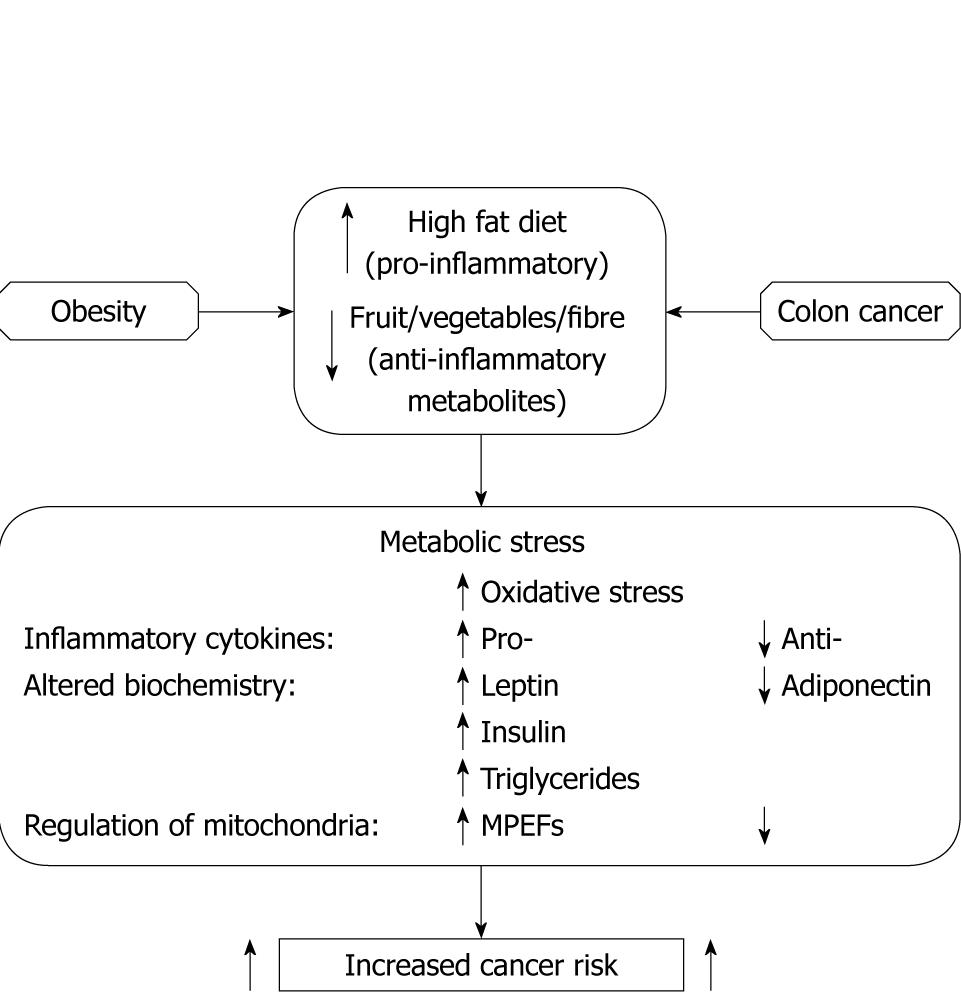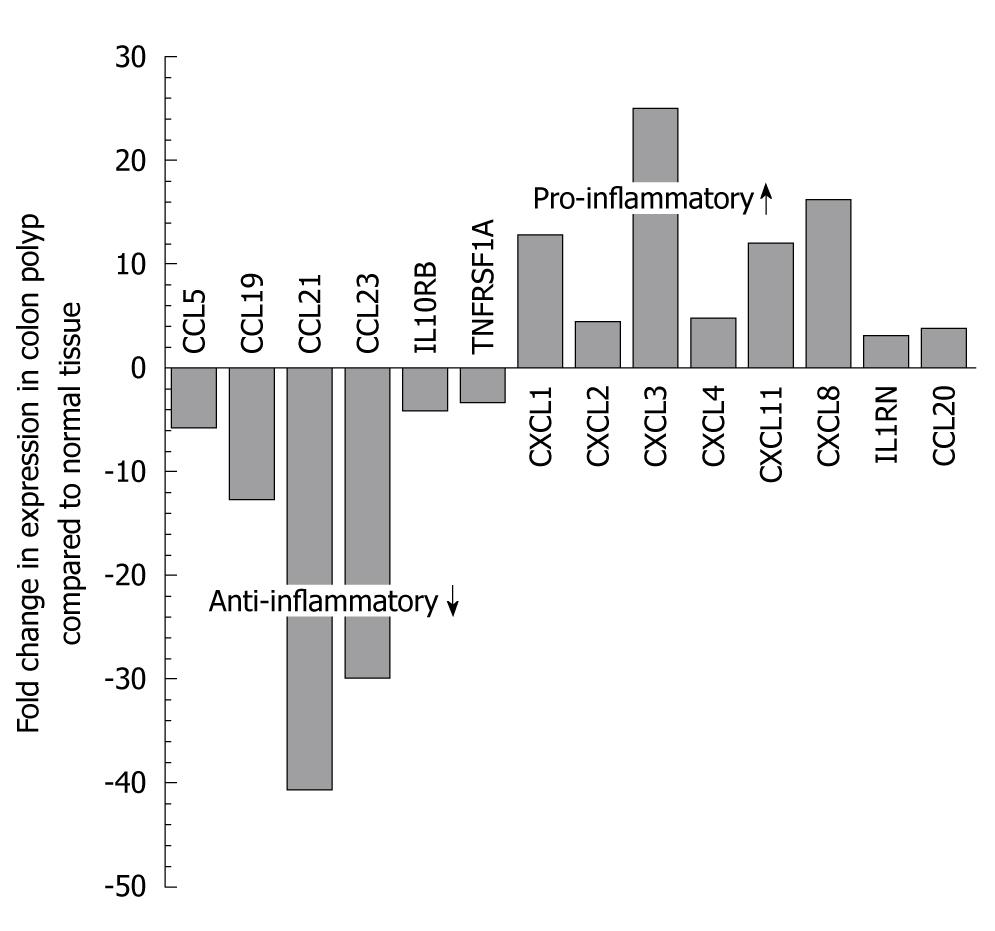Copyright
©2011 Baishideng Publishing Group Co.
World J Gastroenterol Pathophysiol. Aug 15, 2011; 2(4): 61-64
Published online Aug 15, 2011. doi: 10.4291/wjgp.v2.i4.61
Published online Aug 15, 2011. doi: 10.4291/wjgp.v2.i4.61
Figure 1 Dr.
Janice Drew, PhD, Rowett Institute of Nutrition and Health, University of Aberdeen, Greenburn Road, Bucksburn, Aberdeen, AB21 9SB, United Kingdom
Figure 2 Obesity cancer links.
Obesity and colon cancer are both associated with increased consumption of diets rich in saturated fats, together with reduced consumption of fruit, vegetables and fibre. Consumption of high fat diets and diets deficient in fruit, vegetables and fibre promotes metabolic stress. This is manifested by increased oxidative stress and inflammatory responses, altered levels of adipokines, insulin and triglycerides and changes in protein profiles of mitochondrial multiple protein expression forms (MPEFs). Research investigating the metabolic changes associated with obesity is elucidating molecular mechanisms linked to associated increased cancer risk
Figure 3 Application of a custom designed multiplex of inflammatory cytokines associated with early events in colon carcinogenesis.
GeXP profiling generates gene expression signatures to reveal molecular characteristics associated with pathology. GeXP facilitates a rapid analysis of multiple gene targets simultaneously and is feasible for analysis of small tissue biopsy samples (either fresh or frozen archived tissues) available from clinical specimens since only nanogram quantities of total RNA are required. Custom designed multiplex GeXP assays present opportunities to conduct gene regulatory studies in response to dietary metabolites and links with pathology. Studies in our lab are focused on clinical applications of novel custom designed assays to identify signature gene expression profiles and biomarkers of dysplasia, identification of novel disease sub-types and responses to dietary intervention and therapeutics.
- Citation: Drew J. Janice Drew’s work on diet and cancer. World J Gastroenterol Pathophysiol 2011; 2(4): 61-64
- URL: https://www.wjgnet.com/2150-5330/full/v2/i4/61.htm
- DOI: https://dx.doi.org/10.4291/wjgp.v2.i4.61











